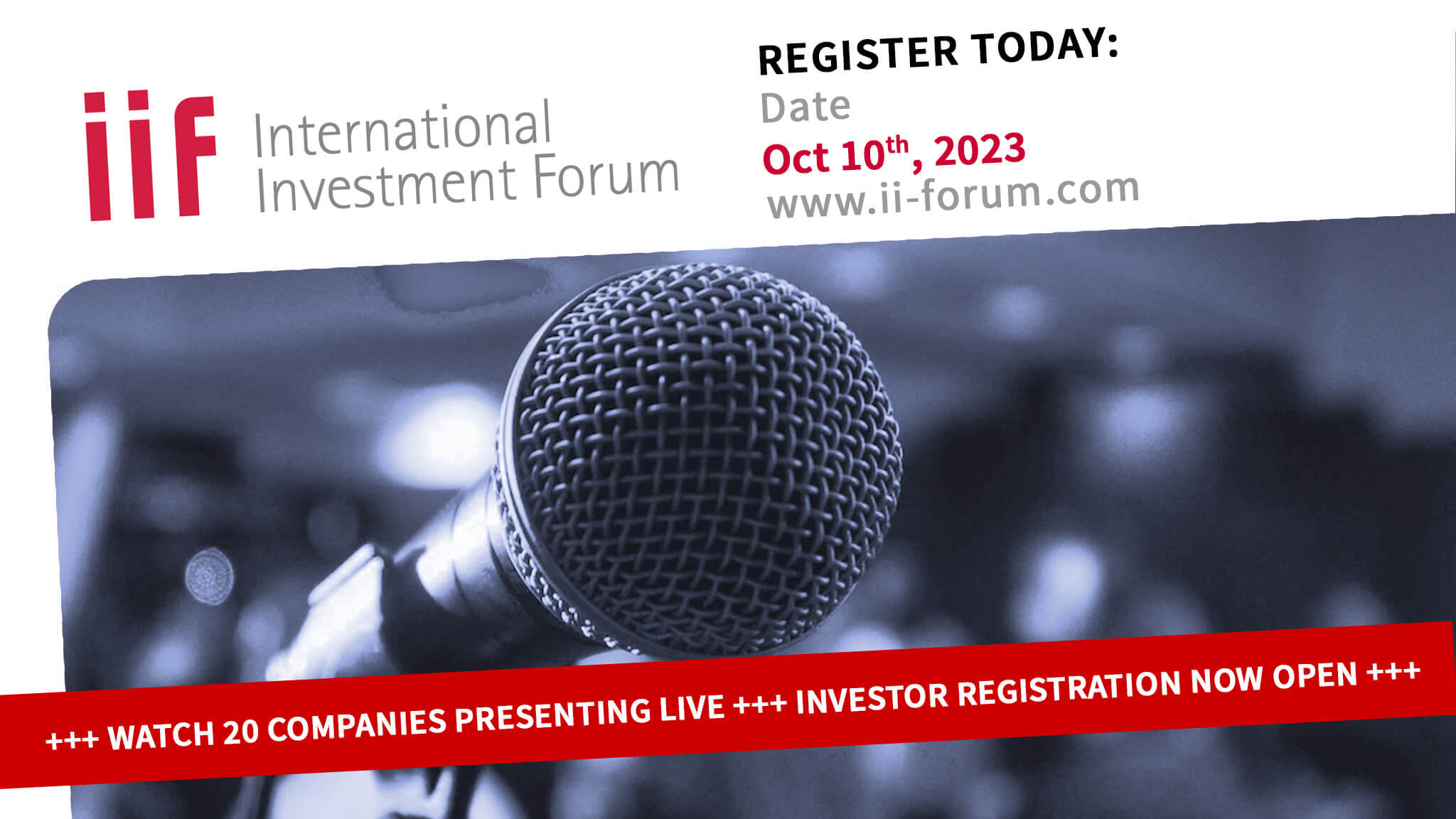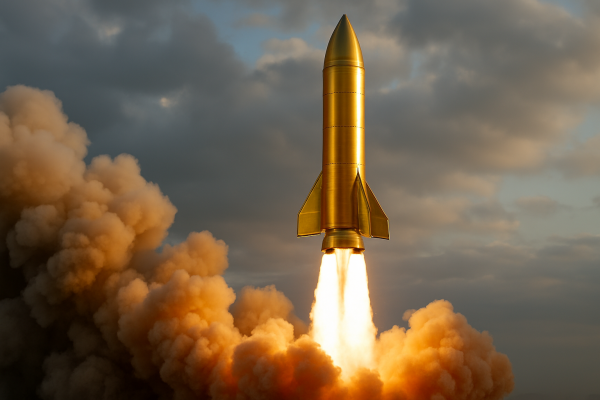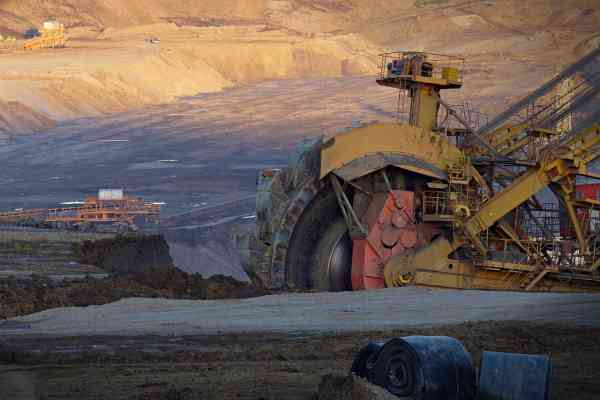October 5th, 2023 | 08:35 CEST
Future investments that will soon ignite: Volkswagen, JinkoSolar, Defense Metals
Do you wish you had a crystal ball? What a question! Those who know the future could make great profit from it. But even without magical powers, one can succeed in consistently aligning your portfolio with the future. We explain how this works and what investors need to watch out for. In addition, we present three companies with great future potential and highlight when investments could be worthwhile and when investors would be better to wait and see.
time to read: 4 minutes
|
Author:
Nico Popp
ISIN:
VOLKSWAGEN AG VZO O.N. | DE0007664039 , JINKOSOLAR ADR/4 DL-00002 | US47759T1007 , DEFENSE METALS CORP. | CA2446331035
Table of contents:

"[...] Nickel, therefore, benefits twice: firstly from its growing importance within batteries and secondly from the generally growing demand for such storage. [...]" Terry Lynch, CEO, Power Nickel
Author
Nico Popp
At home in Southern Germany, the passionate stock exchange expert has been accompanying the capital markets for about twenty years. With a soft spot for smaller companies, he is constantly on the lookout for exciting investment stories.
Tag cloud
Shares cloud
JinkoSolar as a beneficiary of the German solar pact?
If you don't have a crystal ball, you have to count on probabilities instead. One of these probabilities is that renewable energy sources are on the verge of an unparalleled boom. There are several reasons for this. Regenerative energy is not only very cheap but also largely climate-neutral. However, even when looking at the details, it becomes clear to investors that investments in solar companies despite the rosy outlook** are not a foregone conclusion. Companies like JinkoSolar score with a strong market position and good quality, but Chinese companies are facing more and more international headwinds. Import barriers and other trade obstacles could jeopardize the market position of companies like JinkoSolar and ensure that Chinese shares are considered unattractive across the board. With the Chinese photovoltaic company's stock having lost more than 50% over one year, investors would be better off keeping their hands off the stock given the uncertain geopolitical outlook.
Could solar stocks from other regions become attractive instead? Last Friday, representatives of the German solar industry and representatives of the German federal states met for a Solar Summit. The topic was more subsidies for German companies. However, the logical conclusion that investors should invest in German companies instead of JinkoSolar also does not necessarily suggest itself.
The German solar industry has been considered uncompetitive internationally for over a decade. The planned new rules, which would include a minimum production requirement for solar modules in Germany, will likely help domestic companies only to a limited extent. They are likely to remain junior partners in joint ventures with foreign investors - with all the negative consequences, such as increased cost pressure and little room for manoeuvre of their own. So, German solar shares are not an alternative either.
Volkswagen snatches IT guru from Tesla
While investments in photovoltaic shares are currently hardly worthwhile due to the diffuse overall situation, the German automotive industry could be a third sector to emerge. German carmakers are still world leaders but are facing a turning point due to the mobility revolution: In the future, manufacturers like Volkswagen will no longer be able to bring their strengths in powertrains and chassis to the road as comprehensively as they have in recent years. The reason is that electric cars function in a completely different way. This is likely one of the reasons why Volkswagen has announced a prominent addition from Silicon Valley in the form of IT manager Sanjay Lai. Lai previously worked for Google, Tesla and Rivian and is tasked with revamping the software at Volkswagen. A comprehensive software that combines driving assistants and entertainment and convinces users is considered one of the new features that customers really value in e-cars. The addition of Sanjay Lai is a genuine future investment for Volkswagen. However, the prominent newcomer has not yet boosted Volkswagen's share price - the value is still deep in a downward trend. Investors should monitor Lai's progress at VW for potential developments. Currently, there is no immediate urgency for investors regarding VW.
Defense Metals: More rare earths from Canada
Something can also arise with the Canadian mining company Defense Metals. This stock also has a heavy dose of future. But why? Isn't mining an extremely conservative industry that usually requires high investments and promises only limited returns? Defense Metals stands for Wicheeda, a rare earths project in British Columbia, Canada. Rare earths are in numerous future technologies - in PV systems and related components as well as in batteries for e-cars or their modern entertainment systems. Especially against the backdrop of geopolitical tensions, rare earths from countries such as Canada are in particularly high demand. Only recently, Defense Metals announced an updated resource estimate for a total of 34.2 million tons of rock with an average grade of 2.02% rare earth oxides in the categories Measured and Indicated.
Compared to the 2021 resource estimate the rare earth oxide content increased by 17%. "With over 10,000 meters of additional drilling since our 2021 Mineral Resource Estimate, we have now converted 100% of this resource into Proven and Indicated resources and increased the total resource by 17%. We believe that the resource update now demonstrates that we have the tonnage and grade to proceed with our ongoing preliminary feasibility study," commented Defense Metals CEO Craig Taylor. Feasibility studies are used to demonstrate to capital providers such as banks and investors that a resource project can be profitable. Defense Metals' stock could, therefore, be in a promising phase.
If the key data of a feasibility study can be convincing, the market is likely to price a fair amount of risk out of the stock. Currently, Defense Metals is a penny stock trading around EUR 0.13. The market capitalization is only EUR 33.8 million. For risk-averse investors who have already decided about the Company in advance, this market phase can be promising. If the Company makes progress towards production, the share price should also continue to rise - especially against the backdrop of geopolitical tensions. Rare earth projects in regions such as North America or Europe are particularly in demand. Compared to established companies such as Volkswagen or JinkoSolar, Defense Metals must be considered significantly more speculative, but conversely, it also holds significantly more blue sky potential. Also, unlike JinkoSolar and Volkswagen, companies like Defense Metals should profit from the growing uncertainty surrounding China in the long run.

Conflict of interest
Pursuant to §85 of the German Securities Trading Act (WpHG), we point out that Apaton Finance GmbH as well as partners, authors or employees of Apaton Finance GmbH (hereinafter referred to as "Relevant Persons") may hold shares or other financial instruments of the aforementioned companies in the future or may bet on rising or falling prices and thus a conflict of interest may arise in the future. The Relevant Persons reserve the right to buy or sell shares or other financial instruments of the Company at any time (hereinafter each a "Transaction"). Transactions may, under certain circumstances, influence the respective price of the shares or other financial instruments of the Company.
In addition, Apaton Finance GmbH is active in the context of the preparation and publication of the reporting in paid contractual relationships.
For this reason, there is a concrete conflict of interest.
The above information on existing conflicts of interest applies to all types and forms of publication used by Apaton Finance GmbH for publications on companies.
Risk notice
Apaton Finance GmbH offers editors, agencies and companies the opportunity to publish commentaries, interviews, summaries, news and the like on news.financial. These contents are exclusively for the information of the readers and do not represent any call to action or recommendations, neither explicitly nor implicitly they are to be understood as an assurance of possible price developments. The contents do not replace individual expert investment advice and do not constitute an offer to sell the discussed share(s) or other financial instruments, nor an invitation to buy or sell such.
The content is expressly not a financial analysis, but a journalistic or advertising text. Readers or users who make investment decisions or carry out transactions on the basis of the information provided here do so entirely at their own risk. No contractual relationship is established between Apaton Finance GmbH and its readers or the users of its offers, as our information only refers to the company and not to the investment decision of the reader or user.
The acquisition of financial instruments involves high risks, which can lead to the total loss of the invested capital. The information published by Apaton Finance GmbH and its authors is based on careful research. Nevertheless, no liability is assumed for financial losses or a content-related guarantee for the topicality, correctness, appropriateness and completeness of the content provided here. Please also note our Terms of use.




